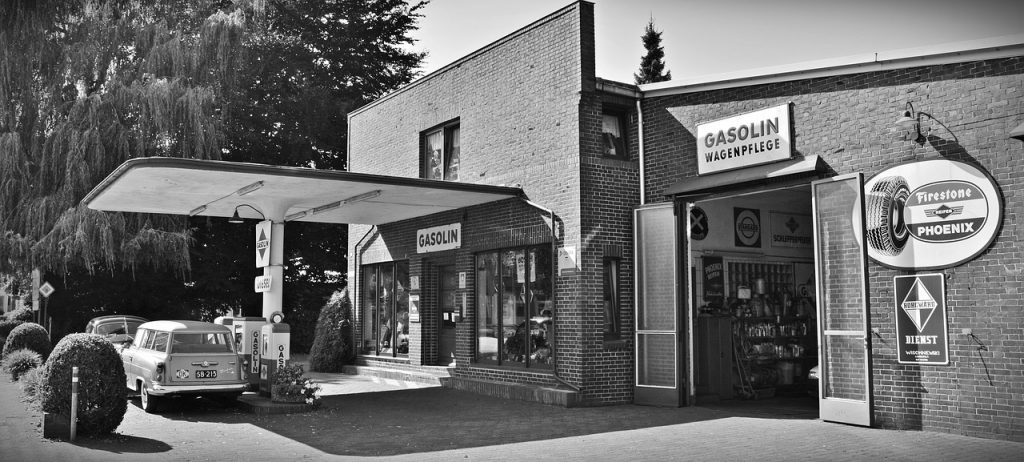The internal combustion engine revolutionised the way we travel and transport goods. Cars have become an indispensable part of our lives. However, to ensure that your vehicle runs smoothly, it is essential to understand how it processes petrol and diesel. This article aims to educate readers on how cars process petrol and diesel.
The Internal Combustion Engine
The internal combustion engine is the heart of the car. It is a complex machine that converts the energy from car fuel into motion. The engine has several components, including the cylinder, piston, spark plug, and fuel injector. The process of converting fuel into motion is called combustion.
Petrol Engine
The petrol engine is the most common type found in cars. It operates by igniting a mixture of petrol and air inside the engine’s cylinder. The combustion process generates heat and pressure that pushes the piston down. The motion of the piston is transferred to the crankshaft, which converts it into rotary motion and powers the wheels.
The combustion process in a petrol engine involves four strokes: intake, compression, ignition, and exhaust.
1. Intake Stroke
During the intake stroke, the piston moves down, and the intake valve opens, allowing a mixture of petrol and air to enter the cylinder. The piston then moves back up, compressing the mixture.
2. Compression Stroke
The piston moves back up during the compression stroke, compressing the petrol-air mixture. The compression raises the temperature and pressure inside the cylinder, making it easier to ignite the fuel.
3. Ignition Stroke
During the ignition stroke, the spark plug ignites the fuel-air mixture, causing an explosion. The explosion generates pressure, which pushes the piston down.
4. Exhaust Stroke
During the exhaust stroke, the piston moves back up, and the exhaust valve opens, allowing the burnt fuel to exit the cylinder. The process of combustion then starts again.
Diesel Engine
The diesel engine is another type of internal combustion engine. It operates by compressing the air inside the cylinder and injecting diesel fuel into the compressed air. The heat generated by the compressed air ignites the car fuel, causing an explosion that pushes the piston down.
The combustion process in a diesel engine involves two strokes: compression and ignition.
1. Compression Stroke
During the compression stroke, the piston moves up, compressing the air inside the cylinder. The compression raises the temperature and pressure inside the cylinder.
2. Ignition Stroke
During the ignition stroke, the fuel injector sprays diesel fuel into the compressed air. The heat generated by the compressed air ignites the fuel, causing an explosion. The explosion creates pressure, which pushes the piston down.
Fuel Injection System
The fuel injection system is a critical component of petrol and diesel engines. Its primary function is to deliver fuel to the engine’s cylinders at the right time and amount. The fuel injection system consists of a fuel pump, fuel injectors, and a fuel pressure regulator.
Fuel Pump
The fuel pump is responsible for pumping fuel from the fuel tank to the engine. It maintains a constant fuel flow to the engine, ensuring it runs smoothly.
Fuel Injectors
The fuel injectors are responsible for delivering fuel to the engine’s cylinders. They spray a fine fuel mist into the cylinder at the right time and amount, ensuring the engine runs efficiently.
Fuel Pressure Regulator
The fuel pressure regulator ensures that the fuel pressure is maintained at the right level. It regulates the amount of fuel delivered to the engine, ensuring it runs smoothly.
Conclusion
Understanding how your car processes petrol and diesel is essential to ensure it runs smoothly. The internal combustion engine is a complex machine that requires careful maintenance to operate efficiently. Regular servicing, including oil changes and filter replacements, is essential for keeping your car in top condition. By understanding the combustion process and the fuel injection system, you can ensure that your vehicle runs smoothly and efficiently.
Fuel Fixer is dedicated to addressing your car fuel needs. We can help you if you accidentally put the wrong fuel in your car. Our team of experts can quickly and efficiently remove the contaminated fuel from your vehicle and get you back on the road. Contact us today to learn more.

